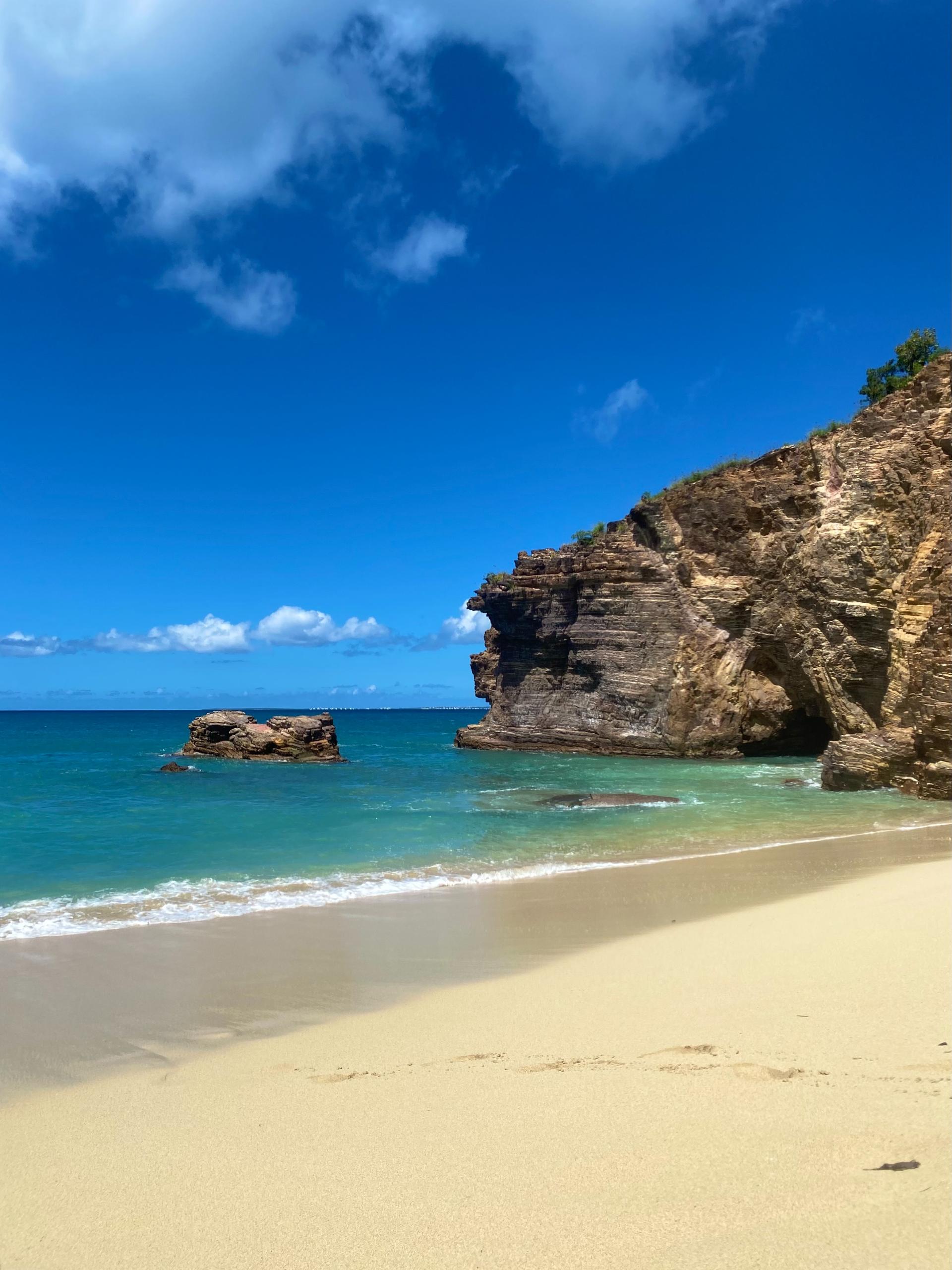Saint Martin🇲🇫

Saint Martin is a tropical island in the northeast Caribbean, approximately 300 km east of Puerto Rico. The island is famous for its beaches, cuisine, friendly populace, and shopping districts. The Dutch side, St. Maarten, is known for its festive nightlife, diverse jewelry, exotic drinks made with island-made rum, and plentiful casinos, while the French side, St. Martin, is noted for its clothing and shopping areas.
⚠️Things you should avoid⚠️
- Avoid displaying signs of wealth to prevent attracting unwanted attention.
- Avoid traveling alone late at night in less populated neighborhoods.
- Avoid hiking alone in remote areas. Always inform someone of your plans and location.
- Avoid disrespecting local customs and cultural practices.
- Avoid feeding or approaching wildlife in order to preserve the local ecosystem.
- Avoid swimming during rough sea conditions or out of the designated areas.
- Avoid eating raw or undercooked seafood to prevent foodborne illnesses.
- Avoid staying in non-tourist areas without proper security measures.
- Avoid venturing too far off the beaten path, as this could pose additional risk.
- Avoid illegal activities and respect local laws.
Overall
8
Crime 🔫
6
There are isolated instances of crime on Saint Martin, particularly during high tourist season. However, the crime rate is quite low compared to other countries. Petty crime and incidents of theft from cars do occur, particularly in crowded areas and major tourist sites. Therefore, it is advisable to be cautious and keep an eye on personal belongings.
Terrorism 💣
10
There are no known incidents of terrorism on Saint Martin. The island maintains a peaceful environment with no significant threat associated with terrorism.
War ⚔️
10
There were no significant armed conflicts or wars in Saint Martin. The island enjoys a peaceful atmosphere, which makes it an attractive destination for tourists from all over the world.
Natural Disasters 🌊
5
Saint Martin is a hurricane-prone area, with the hurricane season traditionally lasting from June to November. Notably, Hurricane Irma caused significant damage in September 2017. Therefore, travelers are advised to follow local weather reports and take necessary precautions during the hurricane season.
Medical Care 🏥
8
The quality of medical care in Saint Martin is good. There are well-equipped hospitals and medical centers on the island, with skilled professionals. However, for serious medical conditions it could be necessary to be evacuated to a neighbouring island or the USA.
Tap Water Quality 💧
7
Tap water is safe to drink in most parts of the island. However, bottled water is also widely available, and it tends to be preferred by tourists.
Disease Burden 🤒
7
Common tropical diseases like Dengue and Chikungunya are present in Saint Martin. However, the risk is quite low and can be minimized by preventive measures such as wearing long-sleeved clothing and using insect repellent.
Corruption 💸
8
Corruption levels in Saint Martin are relatively low. The local government is stable and the legal system is trustworthy. Nonetheless, vigilance is always advised.
Safety for Women ♀️
8
Saint Martin is generally safe for female travelers. Instances of harassment or assault are rare. However, taking precautions, such as not traveling alone at night in less populated areas, is always advised.
Safety for Queer People 👬
9
Saint Martin is a queer-friendly country. There is the good level of acceptance and respect for LGBT+ individuals throughout the island and no instances of specific targeted violence.
Censorship 📺
9
There is a strong commitment to freedom of speech and expression in Saint Martin. The media operates freely and internet accessibility is widespread.
Public Transportation 🚌
8
Public transportation in Saint Martin is reasonably efficient. Buses and taxis are available and are widely used. There are no major issues or previous incidents related to public transportation safety.
Other useful information
🔒 How safe is it?
Saint Martin is relatively safe for tourists and residents alike. However, it is advised to be cautious with personal belongings and avoid solo travel late at night. Be aware of the hurricane season and follow local weather reports.
🏰 Embassies in this Country
Various foreign embassies, including those of the United States, the UK, France, and the Netherlands, are located on the neighboring island of Guadeloupe.
💉 Recommended Vaccinations
Hepatitis A, Typhoid, and Tetanus vaccines are recommended for most travelers. Some people may also be recommended vaccines for Hepatitis B, Rabies and Yellow Fever.
🐍 Dangerous Animals
Dangerous aquatic animals such as the lionfish, sea urchins, and jellyfish can be found off the coast. Always be careful while swimming, snorkeling, or diving, and avoid touching coral or marine animals.
🛂 Visa Requirements
For most countries, visa-free entry is available for a period of up to 90 days. However, the requirements may vary depending on the origin of the traveller.
💲 Currency
The official currency is Euro in the French part and Netherlands Antillean Guilder in the Dutch part. However, US dollars are also widely accepted across Saint Martin. There are multiple ATMs and money exchange offices in the main towns.
💳 Credit Card Acceptance
Credit cards are widely accepted in most establishments. Make sure to inform your bank about your travel plans to avoid any potential issues.
🧑🏭 Is it possible to work and travel in this country?
Opportunities for working holidays or work-and-travel are limited in Saint Martin. However, seasonal work in tourism-related jobs may be available.
💵 Cost of Travel and Living
Saint Martin has a high standard of living, and costs can be high, particularly during the peak tourist season. However, affordable accommodations and dining options exist for budget-minded travelers.